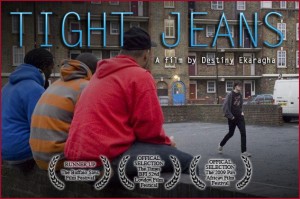This films was about a teenage Nigerian male that seemed to
be ashamed of his cultural identity. He awaits his brother’s arrival whom is
coming from Nigeria. His older brother seems to clash with him when he tries to
fit into his teen brother’s English adapted culture which allowed him to get
into many problems.
What I thought of the
film
I thought the film was very humorous and I feel that
everyone else could relate to the movie even if they were not Nigerian because
we have been exposed to and know of certain stereotypes from this culture. It
was inspiring to see that the young teenage boy in the end realised that there
is nothing to be ashamed of about his Nigerian culture which as a result shows
how the film has challenged these stereotypes portrayed throughout the movie. The
film in a way tires to show us that we are all the same as humans and there
never should be the issue of separating groups negatively because of their
cultural background and what we have seen in the media about these cultural backgrounds.
It’s also quite surprising that this movie of youths have not been represented
in a negative way in terms of knife and gun crime as I am used to seeing these
kinds of negative acts in the media by the youths. Again in a way the film
challenges certain stereotypes of youths in the media.
How identity is mediated (how are black people represented in this film):
- not all about knife and gun crime for once
- stereotypes were not really negative because they were just showing us the cultural ways in a funny way that we can relate to because we heard of it or seen it before. Personally I think every culture has funny stories to tell about their cultural backgrounds. I don't think its really a means of the portrayal of negative stereotypes within the film
- the film stereotypes were quite accurate as the people who directed and worked with this film were of African backgrounds
- Yemi's mum plays the role of a stereotypical strict African mother

























